A turbocharger, also known as a turbo, is an additional system used by car manufacturers to boost engine power which delivers the same level of power in smaller cars that’s usually found in larger cars. A bad turbo will affect the power of the car you so the timely repairs are needed. Let’s find out what are bad turbo symptoms and how to repair it.
Contents
How Does A Turbo Work?
To well understand the signs of a bad turbo, first we need to know how a turbo works.
The turbocharger on a car applies a very similar principle to a piston engine. It uses the exhaust gas to drive a turbine. This spins an air compressor that pushes extra air (and oxygen) into the cylinders, allowing them to burn more fuel each second. That’s why a turbocharged car can produce more power as in the larger car.
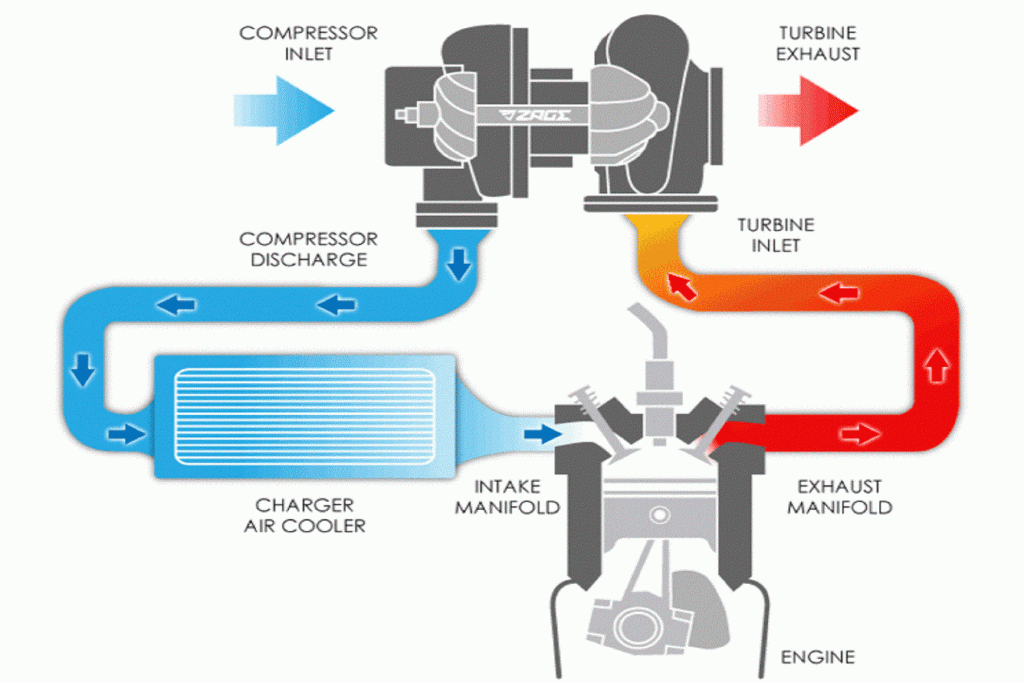
In practice, a turbocharger is effectively two little air fans sitting on the same metal shaft so that both spin around together. One of these fans, which is called the turbine, sits in the exhaust stream from the cylinders. As the cylinders blow hot gas past the fan blades, they rotate and the shaft they’re connected to rotates as well. Now, the second fan, which is called the compressor sits on the same shaft as the turbine, it spins too. It’s mounted inside the car’s air intake so, as it spins, it draws air into the car and forces it into the cylinders.
So in theory and practice, it is how the turbo works. Since you understood the working principles of it, let’s move on to the bad turbo symptoms.
How To Tell If Turbo Is Bad?
1. Slow Acceleration
So, as its primary function of the turbo, it helps to make the smaller car have more power like the larger car, meaning more powerful. One of the first noticeable symptoms is a lack of power and slow acceleration. If you notice that it doesn’t accelerate as fast as it used to, the first thing you should consider checking is the turbo. Similarly, a turbocharged car that struggles to maintain high speeds or isn’t able to reach speeds it once could may be experiencing turbo failure. Therefore power loss is one of the bad turbo symptoms which you should pay attention to.
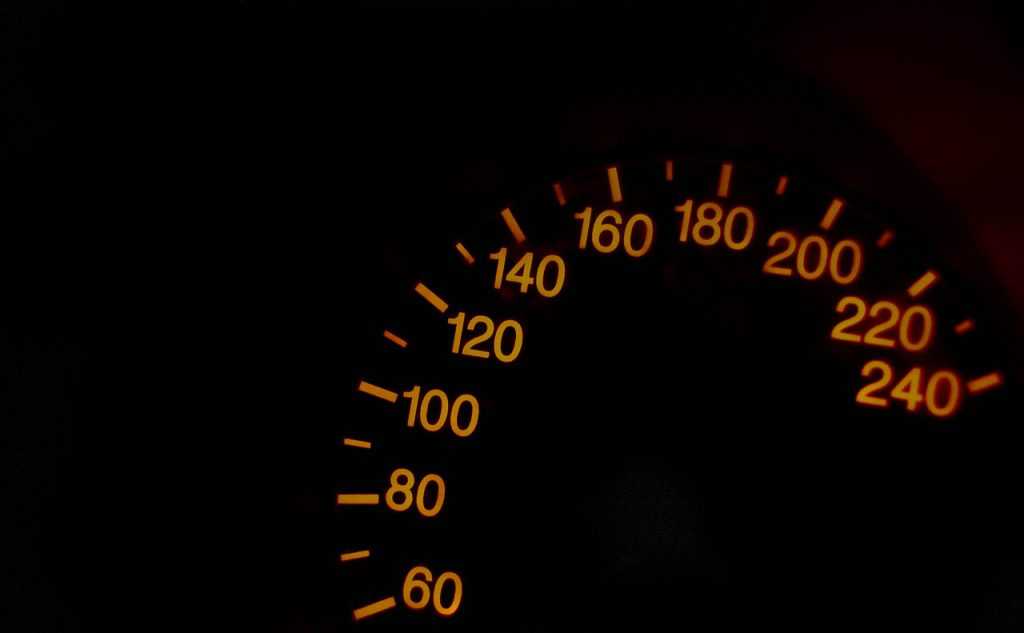
2. Whining Engine
The turbo actually makes the engine quieter because it muffles the sound of the air intake. Then if you hear some noise which is louder than usual from the engine, which is a bit like a dentist’s drill or police siren, the chance you have blown turbo symptoms is 100%.
If you ignore the blown turbo sound, the noise will continuously louder and your car condition will get worse. If you notice a whining from your engine, you should get a professional mechanic to have a look at your car.
3. Burning Engine Oil
One of the bad turbo symptoms is the car burning excessive amounts of oil than usual. You can look inside the turbine by using an endoscope; if there is oil inside, that’s a sign of turbo failure symptoms. You should resolve the problem as soon as possible since leaving the turbo untreated, your turbo will eventually fail.
4. Excessive Exhaust Smoke
If you see the blue or grey smoke from your car when you are driving, the percentage that your car has a bad turbo is really high. So why grey smoke? A crack in the turbo housing or damaged internal seals could lead to the oil leak in the exhaust system, therefore the grey or blue air is produced.
Other than that, you may feel the discoloured fumes as the engine revs increase shortly after idling. Do not ignore this symptom, take your car to the mechanic right after to fix it as soon as possible.
5. Check The Engine Light
On most modern cars, the computer diagnostics will detect a failing turbo resulting in the “check your engine”. It is a sign that the car is trying to tell you something bad happened to your turbo.
In this case, you may need a professional who can help you to detect the exact car problem. Therefore, taking your car to the mechanic is a good solution.
SEE MORE:
- Why Do Car Manufacturers Support A 2.0 Turbo Engine?
- Know The Difference In Biturbo Vs. Twin Turbo Here
- What Is A Welded Diff?
6. The Boost Gauge
In some car models, it is usually to see the boost gauge, so if your car is equipped with the boost gauge, an aftermarket one, then there is an excellent way to find out how well our turbo is. By this way, even if you cannot see the bad turbo symptoms clearly, you still can diagnose your car problem.
You may notice a drop in the boost level, it is a sign that the performance of your turbocharger is compromised. A drop could be a result of various turbo faults. So, you should have your turbocharger checked by a professional as soon as possible.
What Causes A Blown Turbo?
There are also several reasons behind the bad turbo symptoms. Blown turbos are normally the result of problems with engine lubrication or the introduction of foreign objects.
1. Age or Normal Wear and Tear
As with most car parts, everything has a life expectancy. A turbocharger can typically last anywhere from 100,000 to 150,000 miles. This number varies greatly based on the driver and their driving habits. However, it’s possible for them to wear out over time depending on how hard you drive the car and the original build quality of the turbo.
2. Oil
Engine oil, which is likely the blood in the human body, is essentially in the car to make sure the turbo works well. It works to lubricate key moving parts, protect them from corrosion and keep them cool while in use. So it requires constant flow of clean, quality oil. The low quality or incorrect grade of oil will lead to a built up of contaminants in the engine. This can cause abrasive damage to the inside of the turbo. A regular checking and replacing of oil filter will help you in this case.
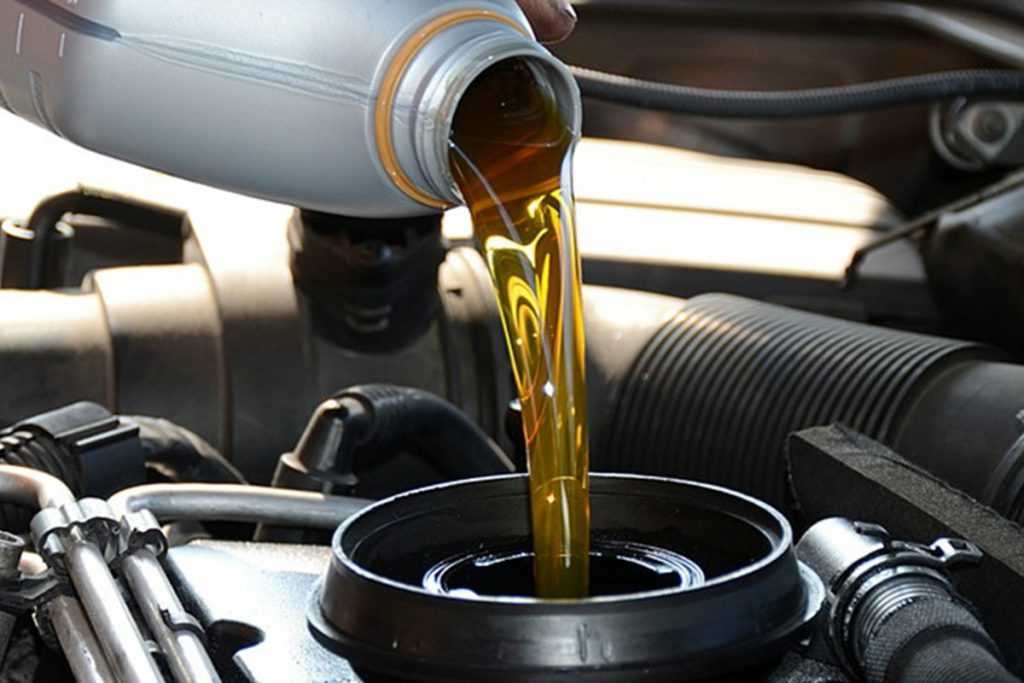
3. Foreign Objects/Deposits
The turbo is made from 2 fundamental components: the compressor at the front and the turbine at the back. Strange objects such as dust, dirt, leaves or other small things can come inside the turbo and cause problems. By that, the efficiency of the turbo will be reduced if these objects come into the air filter. To prevent this happening, your air filter should be serviced and replaced regularly. You should also check your turbo for debris.
4. Bad Seal
Seal is an important part that connects the compressor and the engine. If it starts to wear or be cracked, the oil will leak into the exhaust system. As a result, the turbo has to work harder and quickly be blown, the efficiency of the turbo will reduce and cause bad turbo symptoms. So as quick as possible, take your car to the mechanic to diagnose exactly what happens to your car turbo and fixes it right after.
Can You Drive With A Blown Turbo?
You will still be able to drive your car if the turbocharger fails but the engine failure will not be far behind. Therefore you should only drive on if you have to. As soon as possible, we recommend you to bring your car to a trustful mechanic. Any failure needs to be fixed soon since the longer you leave it, the worse and more expensive the problem will get.
What To Do If You Have A Blown Turbo
If you think that you have a blown turbo, you should get it locked right after by a qualified technician. As is the case with most auto parts, the cost to fix a turbo will largely depend on the make and model of your vehicle. Note that due to the massive range of parts and labor estimates, it’s difficult to ballpark turbo repair costs. So rather than leaving your car in that situation, we recommend you to speak directly with your mechanic and ask for a quote before you have him do any work to your car.
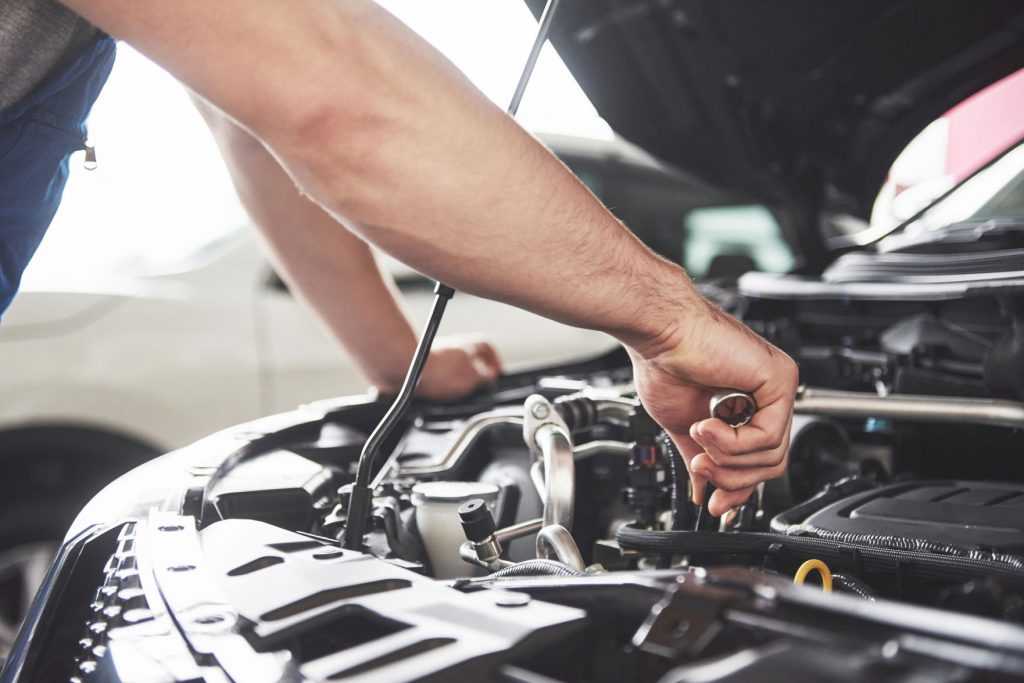
Conclusion
There are many reasons behind a blown turbo and also there are many bad turbo symptoms such as exhaust smoke, grey smoke, engine noise, boost gauge, burned oil… Making sure to take your car to the garage for maintenance frequently. Moreover, each servicing that you have your oil changed to avoid carbon deposits. In case the turbo is too old, considering replacing a new one is a good idea. If you do not understand your car engine well, a licensed mechanic will help you.

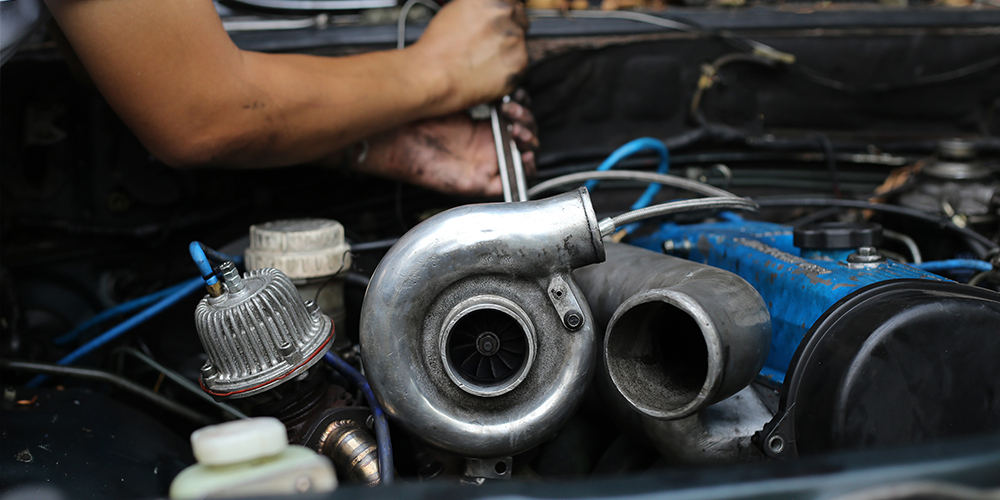


Helo, your articles are very insightful thank you. my car toyota axio luxel-alpha 2011 has alot of sensors and security features. kindly explain how to control toyota traction control system and vehicle stability control if there is no visible button. Thank you